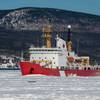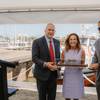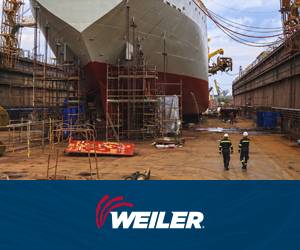Insights: A Conversation with Boysie Bollinger
MN: It is more than two years since the hurricanes. Fundamentally, how has the marine business changed today in the aftermath?
BB: The marine business has not changed as much as the capacity to serve it has. Consider that the marine business was strong before the hurricanes. Very little marine equipment suffered damage unless it was moored and in port. The infrastructure that supports the industry, on the other hand, received considerable damage and in some cases is still not able to support the industry. When you couple the demand for marine services with the available capacity, you obviously see full utilization of facilities.
The world wide demand for marine equipment had also caused considerable shortages in the major equipment components used in construction of vessels, thus it is taking much longer from contract signing to delivery.
MN: What do you count as the biggest challenges today to running an efficient, profitable operation?
BB: Finding a competitive and competent work force is always a challenge, but probably now more than ever. The demand for trained workers is strong and the opportunities are great in the industry, thus turnover is high. We continually focus on training more people to work in the industry.
MN: We understand that Bollinger is building several OSV's on spec. Can you provide some details on those vessels, and explain the decision to build on spec at this time?
BB: Bollinger spent considerable time after the storms waiting on the award of the Littoral Combat Ship from the Navy. The award finally came to us later than expected and was canceled before construction began. Our facilities were severely underutilized during that period in the best market we have seen in quite some time. To avoid that from happening again, we are building on speculation vessels that we think will sell well into the market, but that we can change the schedule on, add to, stop work or whatever needs to be done considering that LCS program should be coming back and hopefully we will be successful building them for the Navy. Additionally the USCG is purchasing a new class of patrol craft called the FRC. If we are successful on that project, we have capacity we can make available by changing our work plan on the spec boats. We couldn't do that if we had a contract requiring specific delivery schedules as well as possibly even not building vessels if we need the capacity.
MN: What investments are you making today in the company, and why?
BB: We are making substantial investments in our repair yards. The Hurricane's caused serious damage at our Gulf Repair yard in east and because the MRGO is being closed, we decided we needed to vacate that location. We also had severe damage at our yard from hurricane Rita. We lost 3 dry docks in the hurricanes. We have 5 new dry docks under construction and will make substantial investments to accommodate them at our other facilities both in LA and TX.
MN: As the marine industry rebuilds, please give your assessment of government (federal, state, local) efforts and resources to promote a strong marine business?
BB: Hopefully they will focus on workforce development. Shipyard jobs are considered manufacturing and thus are the backbone on an economy. Good pay and good benefits are necessary mix in today's population. So governments at all levels should be supporting the training of people to work in manufacturing.
Additionally, the various states see that locating and expanding business if very competitive and they have to be willing to do what others are doing or else they will lose those businesses.
MN: As the marine business is notoriously cyclical, can you offer your insights as to when the current bull run will end? What plans are in place to smooth the ups and downs?
BB: We have seen these cycles before, and most of our yards are catering to more aspects of the industry than before. I think diversification had taken some of the cyclical nature of this business away. We'll see. We are very bullish on the future of the industry generally and that is reflected in the huge investments we are committing in our business. We will spend over $100 million dollars a at our various shipyards in the course of a few years. That's a big bet on the future of this industry, so I'd say we are putting our money where our mouth is.












